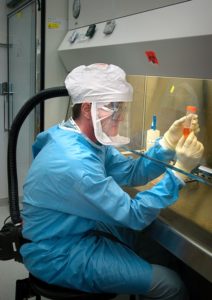 Treating the Leptospirosis infection disease is usually done using antibiotics and if done early will be successful enough in stopping the disease. The cases of Leptospirosis have become quite rare ever since the vaccine has been introduced for this kind of disease. Puppies from six to eight weeks are inoculated with the vaccine and are given another yearly shot to maintain your dog’s immunity.
Treating the Leptospirosis infection disease is usually done using antibiotics and if done early will be successful enough in stopping the disease. The cases of Leptospirosis have become quite rare ever since the vaccine has been introduced for this kind of disease. Puppies from six to eight weeks are inoculated with the vaccine and are given another yearly shot to maintain your dog’s immunity.
The best way to avoid catching this disease is to keep your surroundings clean and sanitary, and through yearly vaccinations. When there are no rodents around who may be carrying the disease, there will be no chances for your dog to encounter any infected urine and acquire the disease, even if he has not yet been vaccinated for it. The vaccine is going to affect your dog adversely but you need not worry since this is only normal. The dog will become lethargic, depressed and might lose his appetite, but these would only be mild ones. It will last for a quite a few days but after that, your dog will be just fine.
Taking a swim in freshwater bodies should be avoided, especially in areas notorious for Leptospirosis. If you do have to take a swim in freshwater, make sure to cover any wounds on the skin with a waterproof material or dressing to prevent leptospirosis and some other infections like hepatitis A and giardiasis. Taking a proper shower after a swim should be a regular practice in looking to prevent leptospirosis.
For laborers who use irrigation, wearing correct and complete personal protective equipment (PPE) including eye goggles, boots, hard hats, hand gloves and waterproof coveralls should be a habit. If you find yourself in Leptospirosis ridden community, do well to drink only boiled water and resist every urge to take a plunge in the freshwaters there. Broken skins present the perfect opportunity for the causal bacterium to get into the body, so cover wounds properly always.

